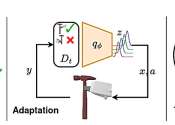Physics (Greek: physis – φύσις meaning "nature") is a natural science; it is the study of matter and its motion through spacetime and all that derives from these, such as energy and force. More broadly, it is the general analysis of nature, conducted in order to understand how the world and universe behave.
Physics is one of the oldest academic disciplines, perhaps the oldest through its inclusion of astronomy. Over the last two millennia, physics had been considered synonymous with philosophy, chemistry, and certain branches of mathematics and biology, but during the Scientific Revolution in the 16th century, it emerged to become a unique modern science in its own right. However, in some subject areas such as in mathematical physics and quantum chemistry, the boundaries of physics remain difficult to distinguish.
Physics is both significant and influential, in part because advances in its understanding have often translated into new technologies, but also because new ideas in physics often resonate with the other sciences, mathematics and philosophy.
For example, advances in the understanding of electromagnetism led directly to the development of new products which have dramatically transformed modern-day society (e.g., television, computers, and domestic appliances); advances in thermodynamics led to the development of motorized transport; and advances in mechanics inspired the development of calculus.









